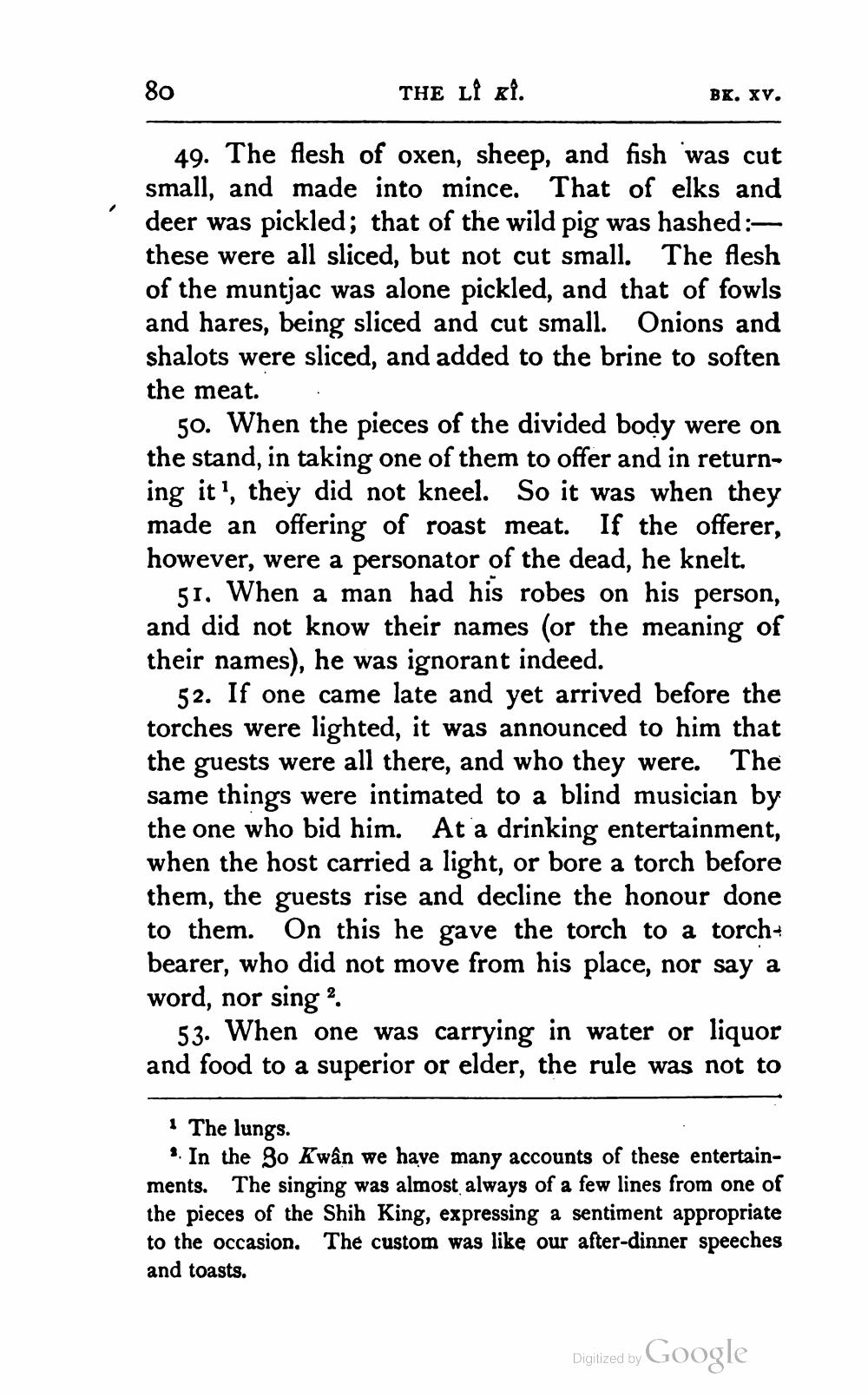________________
THE LÎ ki.
BK, XV.
49. The flesh of oxen, sheep, and fish was cut small, and made into mince. That of elks and deer was pickled; that of the wild pig was hashed:these were all sliced, but not cut small. The flesh of the muntjac was alone pickled, and that of fowls and hares, being sliced and cut small. Onions and shalots were sliced, and added to the brine to soften the meat.
50. When the pieces of the divided body were on the stand, in taking one of them to offer and in returning it, they did not kneel. So it was when they made an offering of roast meat. If the offerer, however, were a personator of the dead, he knelt.
51. When a man had his robes on his person, and did not know their names (or the meaning of their names), he was ignorant indeed.
52. If one came late and yet arrived before the torches were lighted, it was announced to him that the guests were all there, and who they were. The same things were intimated to a blind musician by the one who bid him. At a drinking entertainment, when the host carried a light, or bore a torch before them, the guests rise and decline the honour done to them. On this he gave the torch to a torchbearer, who did not move from his place, nor say a word, nor sing 2.
53. When one was carrying in water or liquor and food to a superior or elder, the rule was not to
1 The lungs.
. In the 30 Kwân we have many accounts of these entertainments. The singing was almost always of a few lines from one of the pieces of the Shih King, expressing a sentiment appropriate to the occasion. The custom was like our after-dinner speeches and toasts.
Digitized by Google




